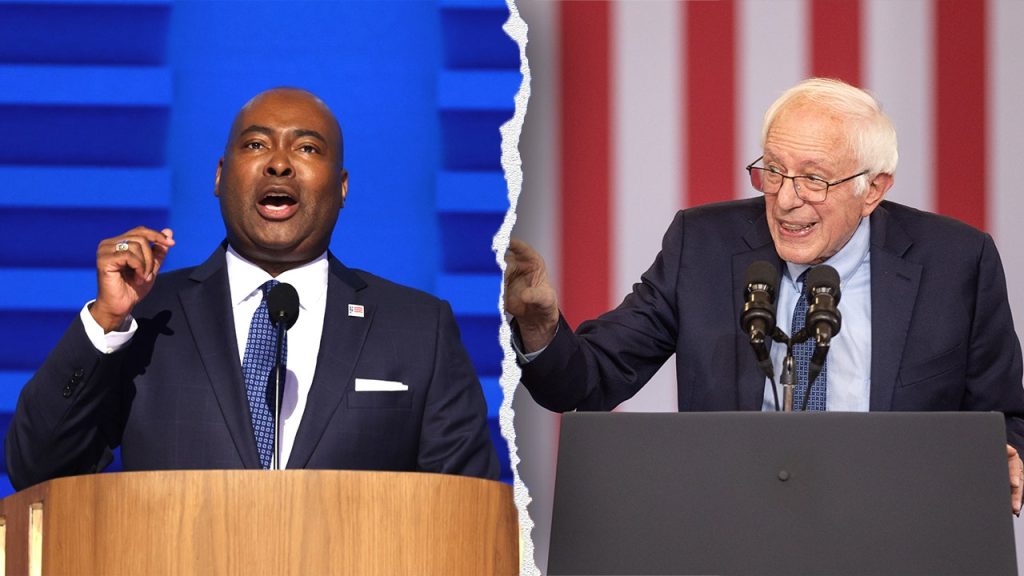DNC Chairman Jaime Harrison and Senator Bernie Sanders engaged in a heated exchange regarding the Democratic Party’s relationship with the working class. Sanders accused the Democrats of abandoning working class people, leading to the working class turning away from the party. Harrison fired back at Sanders, defending President Biden’s record as the most pro-worker President of his lifetime. Harrison highlighted Biden’s accomplishments in saving Union pensions, creating millions of good-paying jobs, and proposing plans that would have improved the quality of life for working people across the country. He criticized Sanders’ assessment as “straight up BS” and asserted that there were many positive aspects to Biden’s post-election plans.
Sanders criticized the Democratic Party and Vice President Kamala Harris following the party’s losses in the 2022 midterm elections. He referred to Harris’ campaign as “disastrous” and questioned whether the party would learn any real lessons from their defeat. Sanders expressed concern about the economic and political power held by the oligarchy and the political alienation experienced by millions of Americans. He doubted that the party’s leadership would have any ideas on how to address these issues. Harris’ campaign only secured 226 Electoral College votes and lost critical swing states such as Georgia, North Carolina, and Pennsylvania. Democrats suffered defeats not only at the presidential level but also in other races, with Republicans projected to take the majority in both the House and Senate.
The tensions between Harrison and Sanders reflect broader discussions within the Democratic Party about potential reasons for their electoral losses. As the party seeks to understand the factors contributing to their defeat, different factions are offering varying perspectives on what went wrong and how to move forward. Harrison’s defense of Biden’s record as a pro-worker president contrasts with Sanders’ criticisms of the party’s approach and messaging. The debate highlights ongoing divisions within the Democratic Party and the challenges the party may face in regrouping and rebuilding after significant midterm losses.
Harrison’s decision not to seek re-election as Chairman of the Democratic National Committee suggests a potential leadership change within the party. Reuters reports that Harrison, who took on the role in 2021 after President Biden’s inauguration, will not continue in the position. This development signals a potential shift in leadership and strategy within the Democratic Party as they seek to address their electoral losses and plan for the future. With Sanders re-elected to another six-year term as senator, the party faces questions about its direction and priorities moving forward, including how to rebuild support among working-class voters and regain political momentum.
The aftermath of the midterm elections has prompted soul-searching and reflection within the Democratic Party as they assess the factors contributing to their losses. Sanders’ criticisms of the party and its leadership reflect broader concerns about the party’s messaging, strategy, and ability to connect with voters. Harrison’s defense of President Biden’s record and post-election plans aligns with a more positive assessment of the party’s direction and priorities. As the party navigates these internal debates, they will need to develop a cohesive strategy to regroup and rebuild support among key constituencies, including working-class voters. The upcoming changes in leadership and strategic direction will shape the party’s future trajectory and its ability to rebound from significant electoral setbacks.


